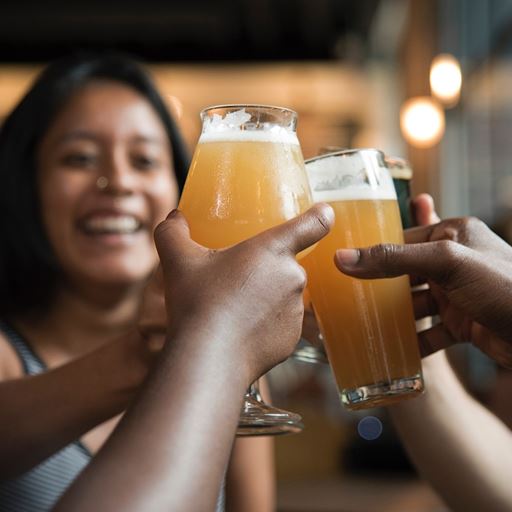True cost of binge drinking
-
Date
Tue 30 Jul 19

The fine for drink-driving would need to be £22,800 – eight times the current maximum level – to reflect the true cost of the crime, according to latest research.
The new study provides a detailed picture of the consequences of binge drinking, by estimating its impact on road accidents, accident and emergency (A&E) attendance and arrests.
It shows that binge drinking increases road accidents by 18.6% and fatal accidents by 72%; A&E attendance by 6% and the number of arrests for alcohol-related incidents by 71%. These results imply:
- Nearly 6,100 extra road accidents and 300 additional fatalities
- Around 63,000 additional A&E attendances each year and
- 100,000 extra arrests.
The study was conducted by Professor Marco Francesconi, from our Department of Economics, and Dr Jonathan James, a former PhD student at the University of Essex, who is now at Bath. They used data from a variety of sources to understand the short-term consequences of binge drinking.
“We used our estimates of the effect on road accidents to put a monetary value on the cost of binge drinking on the agencies left to pick up the pieces – including the NHS and the police. A conservative estimate is £1.52 billion a year. At current arrest rates for drink driving in England, that works out at around £22,800 for every drink driving arrest,” said Professor Francesconi.
Binge drinking typically involves periods of heavy drinking (typically at the weekend) followed by abstinence (during the week) and it has been identified as one of the leading preventable causes of death and a key risk factor for chronic diseases and injuries around the world.
In Canada, Australia, Germany and the United States between 10 and 20% of men binge drink, In the UK, the problem is even worse with 30% of men and 20% of women drinking a bottle of wine or four pints of beer in one session, every week.
Previous research into its impact have tended to focus on particular groups, such as students, or on resulting conditions, including heart disease and cirrhosis of the liver. But this study looked into the broader effects of binge drinking, taking into account facts such as age and timing of alcohol consumption.
“Our findings add to the literature on the impact of risky behaviours on health and crime and clearly demonstrate the negative consequences and the cost to society of binge drinking. Governments around the world are looking at how to tackle the issue, with proposals ranging from minimum unit pricing for alcohol, which the Scottish Government brought in in May last year, to reforming the whole system of tax on alcohol and limiting its availability by age, day of the week and where it can be sold.”
The study is published in the July issue of The Economic Journal.




